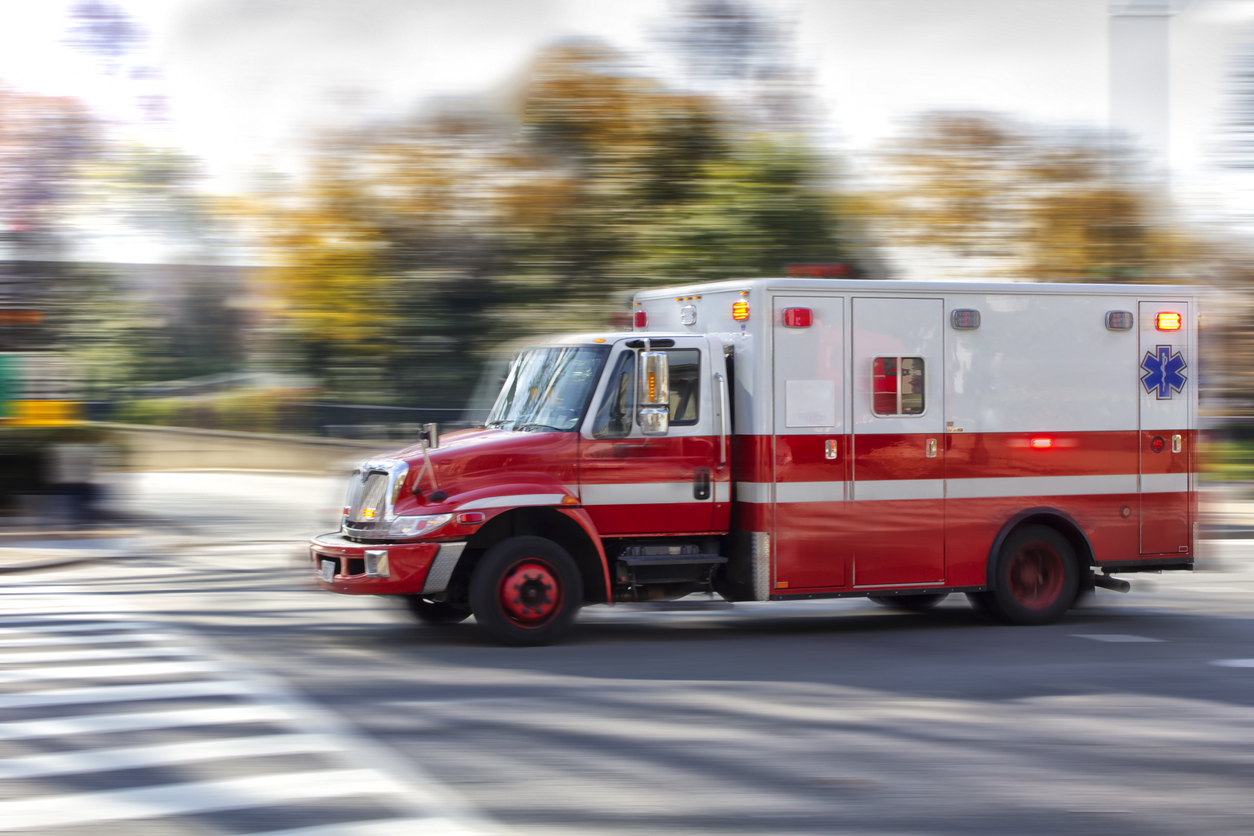
When a car accident is caused by a medical emergency, the driver who suffered the emergency is generally not liable for damages under the sudden emergency doctrine. The experienced car accident attorneys at Wilson Kehoe Winingham Injury Lawyers can help injured parties understand their rights in this situation. Call our Indianapolis team at (317) 920-6400.
Car accidents happen on a daily basis and much of the time it’s clear who is at fault. But what about when a driver has a seizure and is involved in an accident? What if an unexpected heart attack forces them to lose control of the wheel?
In cases when an unexpected medical emergency causes a car accident, the driver may be relieved of responsibility with a sudden medical emergency doctrine.
What Is the Sudden Medical Emergency Doctrine?
The Sudden Emergency defense is a doctrine where, in the case of a sudden and unexpected emergency, a defendant is not found negligent and is not liable for injuries due to a car accident. The driver may have been immobilized either in a physical or mental state.
A sudden emergency doctrine can be difficult to prove. An experienced car accident attorney should be present to negotiate and defend the case as needed.
Claiming a Sudden Emergency Defense
The most important part of the emergency defense is determining if the medical emergency was unforeseeable. In order to legally follow through with the claim, the judge and jury need to determine that the medical emergency was, in fact, unexpected.
If the emergency that inhibited the driver was predictable based on the driver’s past or current medical history, the sudden emergency defense would not apply.
Sudden Medical Emergencies
Suddenly going unconsciousness is unsettling under any circumstances, but is obviously dangerous while operating a vehicle. Any driver suffering a condition that leads to complete unconsciousness may be able to use the defense of sudden medical emergency. Examples of conditions that may lead to a blackout during car accident include:
- Heart attack while driving
- Seizure
- Stroke
- Delusions
- Fainting
- Unknown diabetic condition (such as unexpected drop in blood pressure)
Elements Involved in Determining Liability for Car Accidents Caused by Medical Conditions
A driver who experiences a medical emergency needs to prove undoubtedly that they did not know of any preexisting condition that may have led to the medical emergency. The driver who claims medical emergency defense also has the burden of proof to prove they did not act out of negligence. There are a three main factors in claiming sudden medical emergency defense:
- Time frame of the emergency and the accident
- Total loss of control due to unconsciousness
- Immediate treatment and medical records
Time Frame of Accident
An element to proving unexpected loss of consciousness is how sudden the rate of the accident happened in relation to the medical emergency. There is no specified amount of time that can be used in a courtroom. The accident had to have happened suddenly after the loss of consciousness.
If there was enough time for the driver to gain control of himself or herself, then it may be determined that the accident could have been avoided. If there were warning signs of a condition that may have allowed the driver to pull over, the claim may also not be justified. If the driver knew of any condition where they should not have been driving at all, that makes them negligent. There would be no suddenness in a case where a medical condition is expected.
If the accident happened immediately before and while the driver suddenly experienced a loss of consciousness that was abrupt, then there is a stronger defense.
Total Loss of Control
The sudden medical emergency defense needs to prove total unconsciousness. The defense is used under the pretense that the driver did not act out of negligence. Sudden and total loss of consciousness needs to be the main reason the driver lost control of the vehicle.
Unforeseeable Medical Emergency
Say you were involved in a car accident due to seizure. The severity and unpredictability of the seizure does matter. The emergency doctrine needs to be supported by medical records:
- Did the driver need immediate hospital care?
- What is the diagnosis given by a doctor or healthcare professional?
- Does any medical history show signs of a foreseeable condition?
Even if a person claims they had a seizure or other condition while driving, there still needs to be recorded proof. Just as time matters to the suddenness of an accident, the follow-up treatment time is also a crucial factor.
An emergency should require immediate treatment. If the condition does not require treatment directly after the accident, aside from any injury that may have happened due to the accident, the sudden emergency defense may not hold up in court. Use of medical records is a strong contributing factor to the legitimacy of a medical emergency defense.
Indiana At-Fault Insurance
Indiana uses the tort liability system. Under this structure, the insurance payouts in a car accident are based on the amount of fault each driver has. Indiana participates in fault insurance and requires every Indiana driver to have minimum coverage of $25,000, minimum liability of $50,000, and minimum damage overage of $10,000.
If a driver who acted out of negligence caused a car accident, their insurance must cover damages for the amount they are at fault. If a car accident occurs due to a heart attack, the driver may still be seen as negligent if they had a medical history of suffering heart attacks.
Sudden Medical Emergency and Insurance
What if there is a car accident due to an unexpected heart attack? Who is liable to pay for damages? If the driver who suffered the heart attack or medical condition can prove sudden medical emergency, then potentially no one is liable.
If you are the plaintiff in a case where the defendant has claimed the sudden medical emergency defense, it is in your best interest to work with an experienced lawyer. Though the other driver may not be held liable, working with a lawyer can help you in losses and compensation.
Medical Emergency Cases
In October 1991, the Supreme Court of Indiana determined the sudden emergency doctrine is viable under Indiana’s Comparative Fault Act, I.C. 34-4-33-1. In the Compton v. Pletch case, Compton was found to be 40% at fault; he appealed claiming sudden emergency defense. A new trial for liability and damages followed.
Contact Indiana Car Accident Lawyers
If you’ve been injured or are facing a complex legal matter, reach out to Wilson Kehoe Winingham Injury Lawyers to schedule a consultation. Our team serves clients across Indianapolis and throughout Indiana, and we’re ready to pursue the justice and full compensation you deserve.
